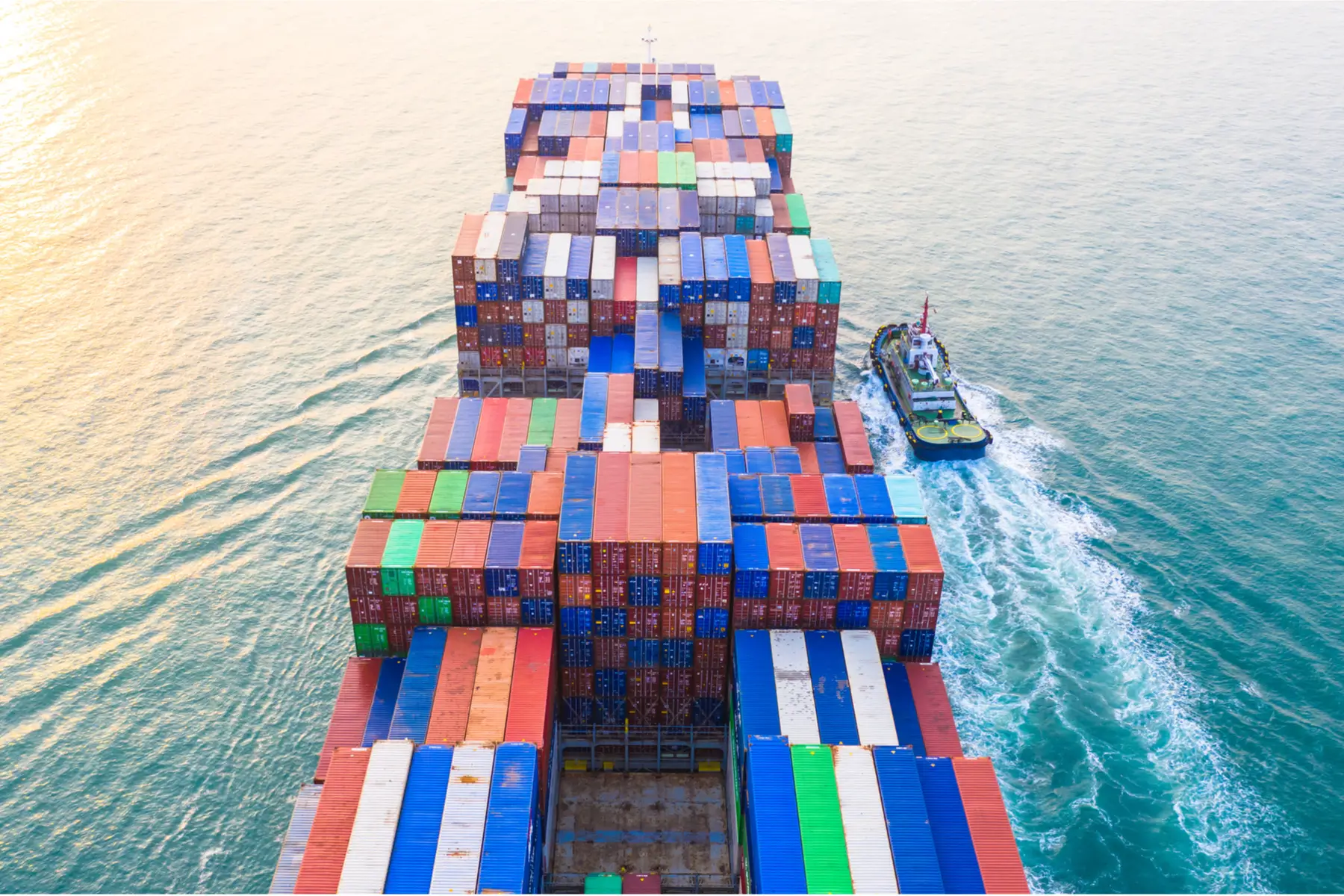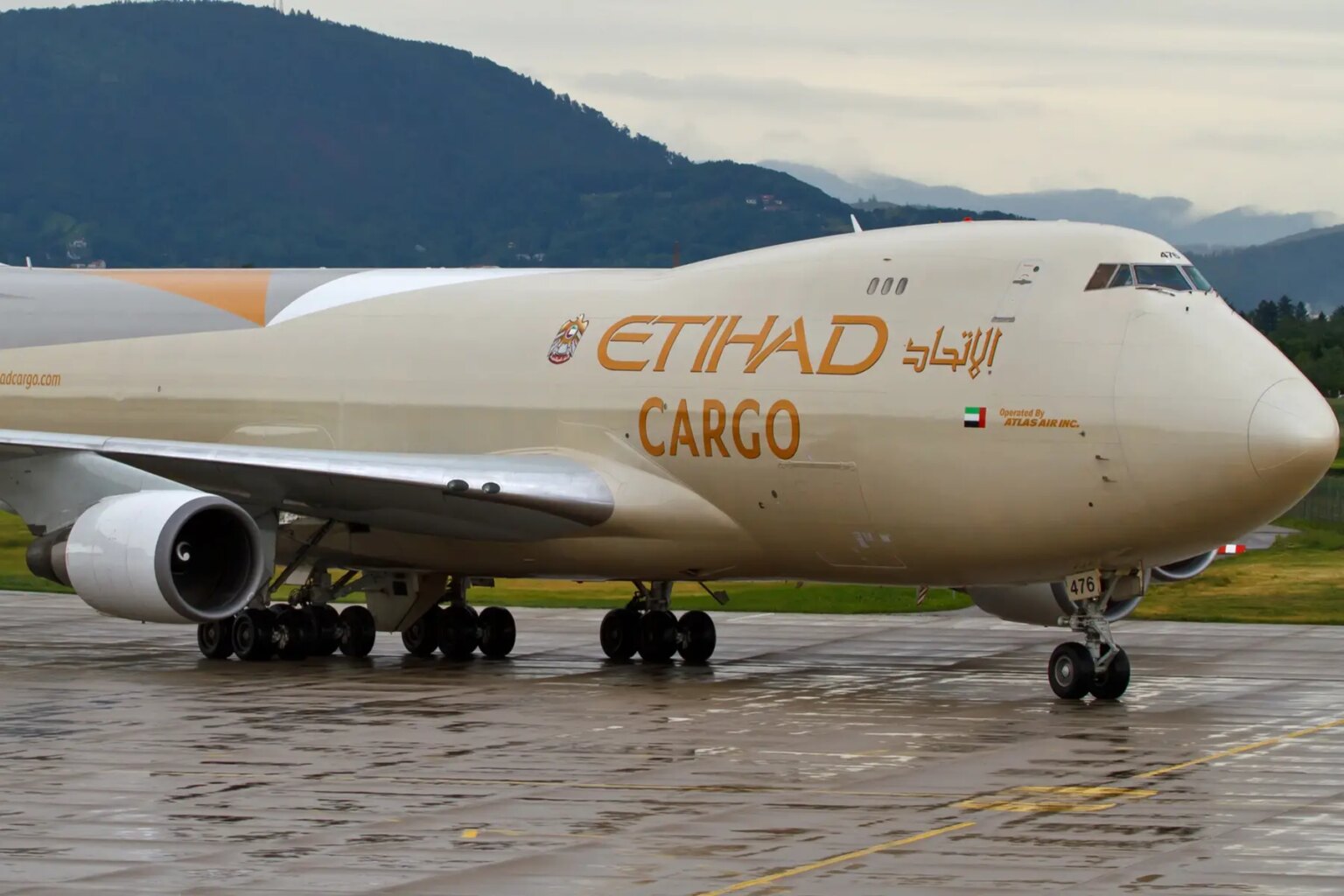From its warm desert climes, modern amenities, job opportunities, and business-friendly environment, the UAE has plenty to offer expats. Quality international schools, a robust healthcare sector, and low taxes add to its appeal.
It’s no surprise then that 88% of the people in the UAE are foreign-born. Of course, if you want to live in the UAE you will need a visa and Emirati ID card. Then, you have to decide where to live, get a cellphone, and open a bank account. But before all of that, you need to figure out the logistics of your move, and how to deal with pets and cars. So, how do you manage removals to the UAE? Here are some handy tips to help you with this. Topics covered below include:
The Relocator
Starting a new life in the UAE? Take the stress out of the move to your new home by finding the right international removals options with The Relocator. Compare a number of trusted international movers and get a free quote in minutes. Remove some of the hassles of moving abroad, get to the UAE with The Relocator.
Relocating to the UAE
So you are taking the plunge and planning the big move. Congratulations! Now there are many things you have to do, among them is figuring out how to get your belongings to your new home.

Most people moving to the country will take their most important personal effects with them when they fly. But, for big items or lots of goods – think furniture, books, and household items – you will need to find another way to organize removals to the UAE.
Generally, expats moving to the UAE will send most of their goods by ocean freight, which is affordable, though slow. Others choose to use air freight, which is much faster, though far more expensive.
Below, we will help you understand the advantages and disadvantages of options for removals to the UAE. However, keep in mind that all your options are going to vary according to the size of both your budget and shipment.
Removals to the UAE with air freight
There are seven emirates within the UAE, though Dubai and Abu Dhabi draw the largest number of expats, as well as business and leisure visitors. As a result, Dubai Airport and Abu Dhabi Airport are the largest in the country. However, there are also international airports in Fujairah, Ras Al Khaimah, and Sharjah. Though these mostly deal with regional routes.

Emirates (Dubai) and Etihad (Abu Dhabi) are the main airlines. And, both offer passenger and cargo flights. In fact, Emirates carried 1.9 million metric tons in cargo in the 2020/2021 fiscal year, while Etihad Cargo reported a 20% increase in its pre-pandemic cargo tonnage from 2019.
Who should use air freight?
Removals to the UAE by air freight can be very expensive. Additionally, air freight’s relatively big carbon footprint can be a concern. However, these downsides are offset by the speed of air freight. So, this is a good option for you if:
- You need your goods in the UAE immediately.
- Your budget allows for it.
- An employer is covering your removals to UAE.
You can also ask your movers or the airline about their carbon offset programs.
How air freight works for removals to UAE
If you plan to send your effects to the UAE by air freight, there are a few things you have to work out before you contact a company to handle the move. For example, to provide an initial quote, a moving company will need to know how many things you plan to move, when you want to move, and whether you will pack everything yourself. After you have a few quotes in hand, you will need to begin the process. This means paperwork.
Your move to the UAE will require a lot of documents, beginning with a contract with your air cargo company. You also need to provide the following customs documents:
- Detailed packing list
- Certificate of origin
- Original invoice
- House air waybill
- Permits where applicable
Depending on your carrier, you may need to provide additional documents, such as express handling request forms, hold request forms, or pet handling forms.

Then, of course, you have to pack. In many cases, you will be able to pack your belongings yourself and hand them over to the carrier. However, some companies offer professional packing services. This is useful because they will ensure your goods are protected. And, they will often offer door-to-door services. This means they will pack your goods, take them to the airport for shipping, then they will clear UAE customs with your goods and deliver them to your new home.
However, keep in mind that some carriers will ask you to pick up your shipment from them at the airport. In this case, you will need to take all your documents, and you may even need to pay for customs clearance or handling.
Air freight timings
The biggest advantage of using air freight is that it is fast. In fact, most companies can handle air freight removal to the UAE in a couple of days. For example, it would only take one or two days to send your goods from the UK to Dubai, and up to three days if you include delivery time. Emirates SkyCargo accepts cargo up to 12 hours before a flight’s departure time. If you want to get a sense of how long your air cargo shipment will take, try using an online estimator.
Air freight costs
Air cargo is often very expensive because there simply are not enough flights available. To calculate the cost of your shipment, most companies will charge a per kilogram fee based on the volume, size, and weight of your cargo.
Before the COVID-19 pandemic, these fees ranged between US$2.50 and US$5 per kilogram. However, there has since been a sharp rise in fees. As of February 2020, these fees range between US$4 and US$8 per kilogram. Your carrier may also impose additional charges. This depends on customs procedures, the complexity of the move, insurance, and delays, for example. As a gauge, to move the contents of a one-bedroom flat from the UK to the UAE could cost around £6,484–£7,166. At a March 2022 exchange rate, this works out to a range of US$8,635–US$9,543.
Packing options for removals to UAE by air
Air freight is not the most environmentally friendly option for removals to the UAE. However, if you are concerned about your impact, you can try and find ways to minimize it. For example, take only what you need and ask if your cargo company has any eco-friendly packing materials. You can also choose to pay into a carbon offset program should the airline offer one.
In most cases, you are welcome to pack your air freight shipment yourself using your suitcases and boxes. However, airlines and companies can also provide their own branded packing materials if you need them.
Finding an air freight company
Airlines are a popular choice for air freight removals to the UAE. Both of the country’s major airlines offer cargo flights. As such, you can book air cargo shipments with both Emirates SkyCargo and Etihad Cargo. There are also many freight forwarders and courier companies that operate their own fleet of planes or work with airlines, including IAG Cargo and FedEx.
Removals to UAE with sea freight
Most expats moving to the UAE choose to ship their goods to the country with ocean cargo. The UAE is an international trade hub and has several major ports located in Dubai, Abu Dhabi, and Sharjah.

This makes it convenient for expats to arrange removals to the UAE by sea freight. The main ports include:
- Port Khalifa (Abu Dhabi)
- Mina Rashid (Dubai)
- Jebel Ali (Dubai)
- Mina Zayed (Abu Dhabi)
- Khor Fakkan (Sharjah)
- Mina Khalid (Sharjah)
Who should use sea freight?
Because it is far more affordable than air cargo, many removals to the UAE are done by sea freight. This method also has the benefit of being far more environmentally friendly than moving goods by air. It is also a great option for people with big shipments moving across long distances.
However, given that ocean freight takes weeks to arrive, this is not an option for those who will need their goods as soon as their feet touch the ground in the UAE.
How sea cargo works
The process for ocean shipments is very similar to the one for air cargo. You’ll begin by working out exactly what you need for your move and contacting various companies for quotes. You could also use comparison sites like The Relocator and ReloAdvisor.
With the company’s help, you will also have to decide what type of shipment you need: a full container load (FCL), or less than a container load LCL (also known as groupage). The size, weight, and volume of your shipment will factor into this decision.
Generally, your chosen relocation company will handle almost all aspects of your shipment. This includes packing, paperwork, customs clearance, and more. As such, you should enjoy a seamless move without having to do much besides supplying the necessary information, paperwork, and payment.
Sea freight timings for removals to UAE
Although they are cheaper than air freight, ocean shipments take a lot longer to arrive. As a result, you should expect to wait at least several weeks for your goods to reach you in the UAE. For example, a full container load from the UK to the UAE could take five to seven weeks to arrive at your door. But, a shared container load going from London to Dubai could take up to 10 weeks. Once your shipment arrives your moving company will also clear it with customs and should deliver it to your new home within a week.
Maritime freight costs for removals to UAE
Sea freight can be 12 to 16 times less expensive than air freight, according to a World Bank study. As such, it is a far more affordable option for removals to the UAE. Since companies calculate the cost of your shipment by its volume and weight, it is important to understand how much you are shipping. You can then decide whether you need a full container or a shared one. Although prices have increased recently, you can still expect to pay far less for sea freight (US$2–US$4 per kilogram) than air freight.

Keep in mind that there may be other costs, such as:
- Inland transit charges
- Documentation fees
- Terminal fees
- Customs charges
- Insurance
Packing options for removals to UAE by sea
If you are organizing removals to the UAE by sea freight, then packing will be a breeze. Generally, your relocation company will take care of everything. That is because goods being moved by sea freight have to be packed carefully and according to specific guidelines. As such, your movers will ensure your goods are adequately packed and protected for transport in a shipping container. Be sure to ask your movers about eco-friendly packing options.
Finding a sea freight company
Expats planning removals to the UAE will find plenty of companies offering sea freight services. You can therefore shop around and get quotes from a few before you decide on one.
You can also find recommendations and quotes on the following sites:
As always, it’s a good idea to get recommendations if possible. A good choice would be to look into the major international removal companies, such as Allied Pickfords or Santa Fe.
Road and rail removals to the UAE
Removals to the UAE by road or rail depend on where you are setting out from. There are some possibilities if you are moving to the UAE from nearby countries, for example.

As such, it is possible to do a move by road from Oman or Bahrain to the UAE. There are also some “Man with a Van” style services available in the UAE. However, they usually only manage moves within the country and will not go across international borders. If you are looking to move from Dubai to Sharjah, for example, you could use such a service. Generally, these companies charge an hourly rate, which is around AED 220 per mover per hour. You can find listings on classified ad sites like Dubizzle and Expatica’s UAE directory.
The DIY road option
There is also the option of doing a road removal to the UAE yourself. For example, you could rent a car or truck and drive it yourself. Of course, this only works if you have a valid driver’s license. You would also have to take into account certain costs, including those of renting a car, road tolls, and border or departure taxes. You will also have to have all the proper documentation such as your passport and local ID, car registration and insurance, and visa. But, if you have all of this in order, then it is possible to move by road from, for example, Manama, Bahrain, to Dubai (about 8-10 hours), or Muscat, Oman to Abu Dhabi (around five hours).
Rail option on the horizon
In addition, the UAE is making great strides with Etihad Rail, its national railway. The direct train line linking Abu Dhabi and Dubai was completed in March 2022. Although many of the international connections are yet to be made, the network will eventually allow people to travel to five Gulf countries. As such, it should be possible to move to the UAE from Bahrain, Saudi Arabia, Qatar, Kuwait, and Oman by rail.
International removals companies
Internationals continue to seek out distant places to live, work, study, and play. Unsurprisingly there are many international relocation companies to serve the needs of expats and digital nomads moving abroad. These companies can handle every aspect of your move. They’ll do the packing, shipping, delivery, and more.
In fact, some will even offer exclusive additional services such as applying to schools for your children, helping you find a home, and setting up your utilities. Of course, all of these services come at a cost and will vary according to individual needs. As such, your bill could range from US$1,000 to US$10,000 for a move to the UAE.
How to find an international relocation company
The best way to find a reliable international moving company is to ask for a personal recommendation. Of course, these days most people begin their search online. A quick search will give you numerous names for removal companies. However, you could also try the below comparison sites:
DIY versus using a relocation company
When it comes to removals to the UAE, many people consider – at least in passing – whether they should hire a company or go it alone. There are, of course, pros and cons to both options. It’s important to understand these and think them through carefully.
For example, it can be cheaper to do the move yourself. This is worth considering if you have very little to move from a neighboring country. However, if you have a lot of goods to ship from very far away, or you simply aren’t sure of the procedures, it can be quite tricky. As a result, you might end up making mistakes that could prove costly – in both time and money. Similarly, you may not have enough time to do everything yourself. In this case, a full-service relocation company can be very helpful.
Removals to UAE: vehicles and pets
Some expats moving to the UAE may need to bring pets with them. And, others might choose to ship their cars across, too. Both are possible, as long as you follow the right procedure and have all the necessary documents.

Shipping cars to the UAE
While importing a car into the UAE is possible, there are still many hoops to jump through. To begin with, generally, the car should be less than 10 years old and undamaged. Older cars, like classics, require prior approval from the Roads and Transport Authority. Additionally, only left-hand drive cars are allowed to be brought into the country. Here too, there is an exemption for classic cars older than 25 years.
Of course, you are going to need to have your paperwork in order. You will have to provide the original invoice (to prove ownership and value), a certificate of origin, and a shipping receipt. Then you will also need your passport, driving license, and residency visa.
Once your car arrives in the UAE, though, there are still more hurdles. You will have to clear customs at the port of arrival and pay the customs fee, which is 5% of the car’s value. You also have to pay for the import plates and clearance certificate (about AED 150). Then, you need to take your care to a government-approved garage to undergo a test and receive a No Objection Certificate. Be sure to budget for this as tests can cost between AED 120 and AED 450. Finally, you will have to take out a valid insurance policy and register your vehicle with local authorities – this costs another AED 400.
Relocating pets to the UAE
Bringing your pet into the UAE will require a lot of effort and paperwork on your part. But, as long as you meet all the requirements, your furry little friend should be able to accompany you on your UAE adventure.

Here are the things you’ll need:
- A microchip that complies with ISO 11784, ISO 11785, AVID 9, or AVID10.
- Rabies certificate signed by a vet, with the vaccine given at least 21 days prior.
- Rabies Antibody Titer Test, taken at least 21 days after the rabies vaccine.
- Additional vaccines as appropriate such as Distemper, Hepatitis, and Parainfluenza (dogs) or Calicivirus (cats).
- Internal and external parasite treatment that was administered 14 days before travel.
- Import permit from UAE’s Ministry of Climate Change and Environment.
- APHIS Form 7001 issued by your vet within 10 days of travel.
- You must provide a copy of your passport.
- And a signed customs clearance form.
Keep in mind that there is a COVID-19 policy for cats, you will need to attest that your pet:
- Has not been in contact with COVID-19 positive human or animal within at least 14 days before shipping.
- Or was isolated under your supervision for 14 days before shipping, without showing symptoms of respiratory illness.
- Or it has a negative result following a PCR test 96 hours before traveling.
Note that some countries are considered rabies-free or rabies controlled by the UAE and therefore, do not require a Rabies Antibody Titer Test. These include Australia, EU countries, Hong Kong, Singapore, Switzerland, and the UK.
Pets should arrive on direct flights to the airports in Abu Dhabi, Dubai, or Sharjah. Generally, pet arrivals are only allowed Mondays through Thursdays and each person can only bring in two pets a year.
Customs and importing goods into UAE
The Federal Customs Authority deals with everything related to customs in the UAE. As such, you should expect to deal with them during your move to the country. However, each Emirate has its own customs authority. These include Dubai Customs, General Administration of Customs Abu Dhabi, and Department of Seaports and Customs Sharjah.
To bring your shipment into the UAE, you or your moving company will have to present the following documents:
- Air waybill
- Bill of lading
- Commercial invoice
- Certificate of origin
- Packing list
- Delivery order
- Import permits (as applicable)
You may also need to pay some import tariffs. This is usually 5% of the cost, insurance, and freight (CIF) value of the products. Keep in mind that you will pay customs duty on imported alcoholic beverages (50%) and tobacco (100%).
Useful resources
- Moving to the UAE – government portal to assist expats
- Federal Tax Authority – for details on customs duty and other taxes
- MoveHub – for comparisons on shipping









